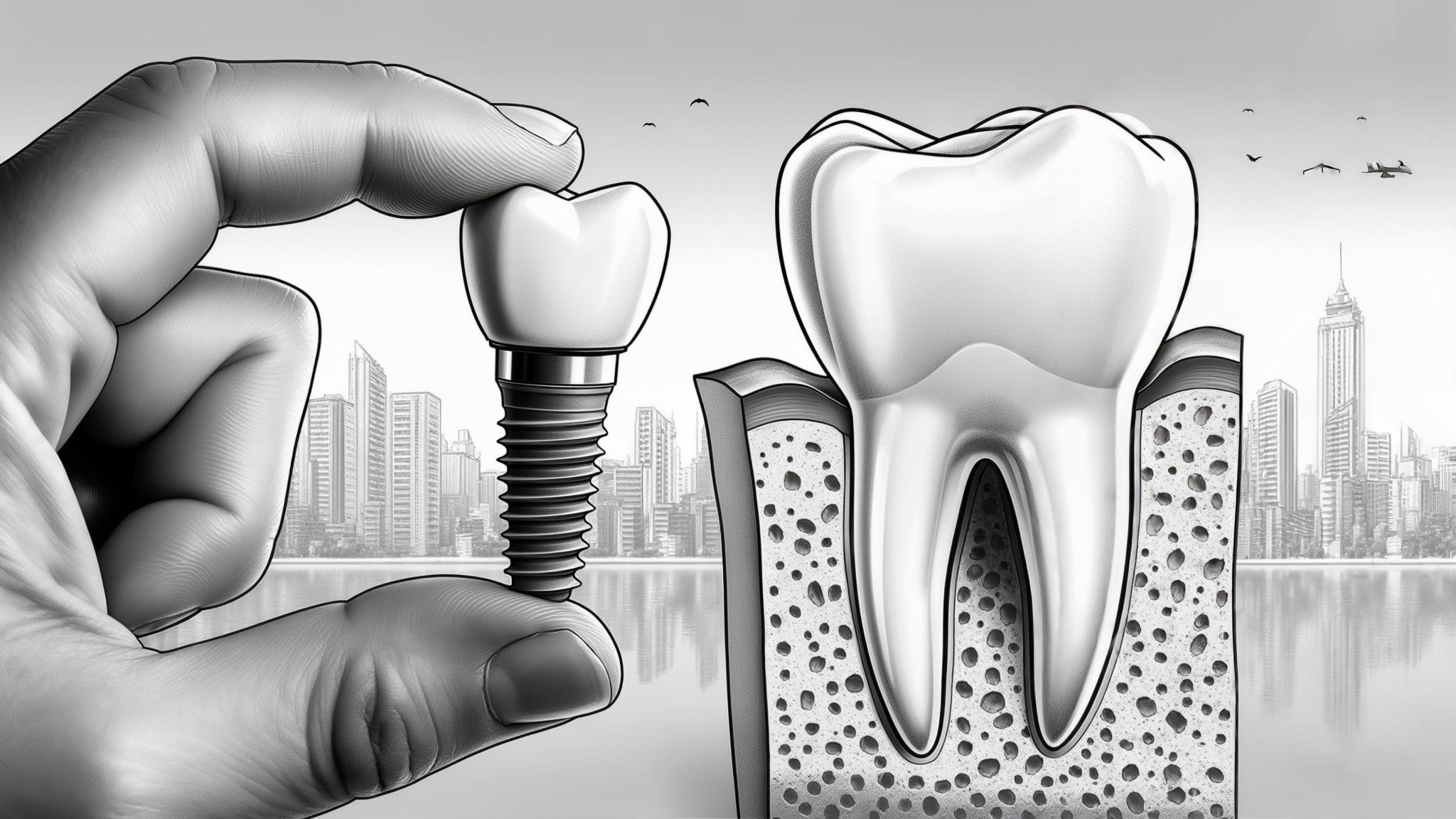Understanding Dental Implants
Dental implants are a popular solution for replacing missing teeth. They consist of three main components: the implant post, the abutment, and the crown. The implant post, usually made of titanium, acts as the root of the tooth and is surgically placed into the jawbone. The abutment connects the implant post to the crown, which is the visible part of the tooth that looks and functions like a natural tooth.
Dental implants work by integrating with the jawbone through a process called osseointegration. This creates a stable and durable foundation for the replacement tooth. Benefits of dental implants include improved aesthetics, as they look like natural teeth, enhanced functionality for eating and speaking, and the preservation of jawbone health by preventing bone loss.
When comparing traditional dental implants to mini implants, the most notable difference is size. Mini implants are smaller in diameter and often shorter, which can make the surgical procedure less invasive.
What are Mini Implants?
Mini implants, as the name suggests, are smaller versions of traditional dental implants. They typically measure less than 3 millimeters in diameter and have a different design that allows for a less invasive placement procedure. The materials used for mini implants are similar to traditional implants, often titanium or a titanium alloy, which are biocompatible and integrate well with the bone.
Compared to traditional implants, mini implants have a smaller length and diameter, making them less invasive. This can result in a shorter healing time, allowing patients to enjoy their new teeth sooner.
Advantages of Mini Implants
Mini implants offer several advantages:
- Less invasive procedure: The smaller size means less drilling and a simpler surgical process.
- Reduced recovery time: Patients often experience a quicker recovery due to the minimally invasive nature of the procedure.
- Cost-effectiveness: Mini implants are generally less expensive than traditional implants.
- Suitability for patients with limited bone density: They can be a good option for those who may not have enough bone for traditional implants.
- Immediate loading capability: In some cases, mini implants can support a crown or denture immediately after placement.
Disadvantages of Mini Implants
Despite their benefits, mini implants have some drawbacks:
- Potential for lower stability: The smaller size may not provide the same level of stability as traditional implants.
- Limited use in complex cases: They may not be suitable for replacing larger teeth or in areas with significant bone loss.
- Longevity concerns: While they can last many years, they might not last as long as traditional implants.
- Possible complications and maintenance issues: As with any dental procedure, there can be complications, and proper maintenance is crucial.
Who is a Candidate for Mini Implants?
Ideal candidates for mini implants include patients with sufficient bone density who seek a less invasive option. They are also suitable for individuals who cannot undergo more extensive surgeries due to medical conditions or personal preferences.
However, mini implants may not be suitable for those with significant bone loss or certain medical conditions that affect healing and bone integration.
The Mini Implant Procedure
The mini implant procedure begins with a consultation and treatment planning. During this stage, your dentist will evaluate your oral health and discuss your options.
The surgical procedure involves using local anesthesia to numb the area. The dentist will then place the mini implants into the jawbone using a precise technique. Post-operative care includes following your dentist’s instructions for recovery and attending follow-up appointments to ensure proper healing.
Cost Considerations
The average cost of mini implants can vary, but they are generally more affordable than traditional implants. Factors affecting cost include the number of implants needed and the complexity of the case. While some insurance plans may cover part of the procedure, many dental offices offer financing options to help manage the cost.
Conclusion
Mini implants offer a viable solution for many patients seeking to replace missing teeth with a less invasive and cost-effective option. However, it’s essential to consult with a dental professional to determine if mini implants are the right choice for you. Making an informed decision will help you achieve the best possible outcome for your dental health.
References
For further reading on dental implants and mini implants, consider exploring reputable dental health websites and journals that provide in-depth studies and articles on these topics.

